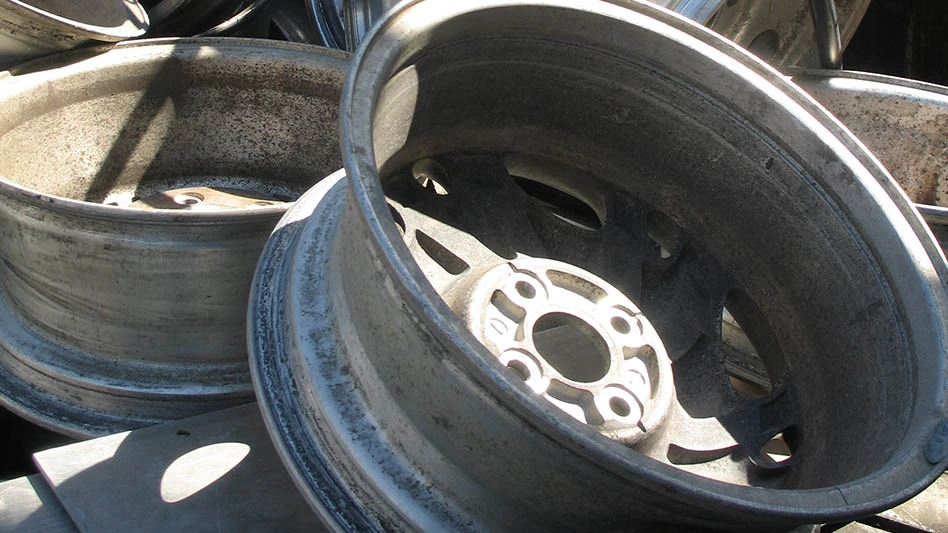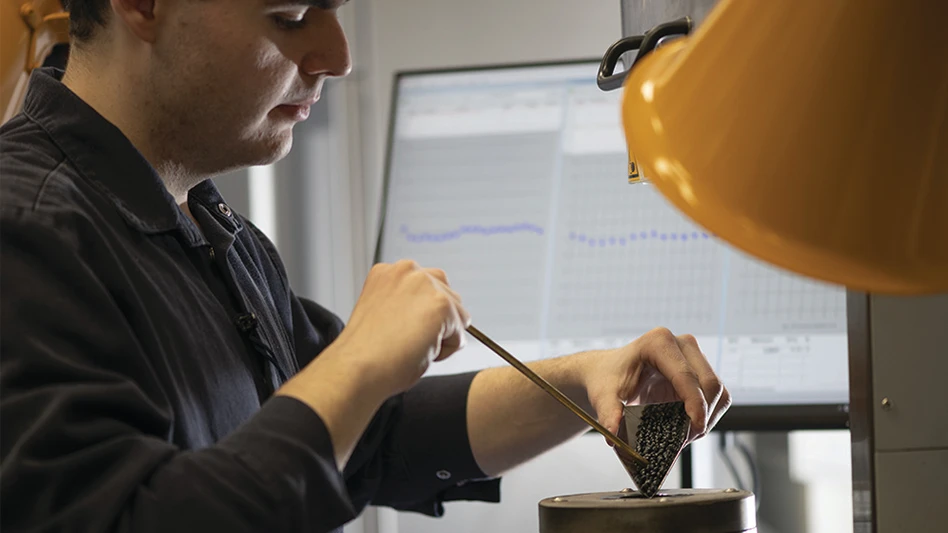The U.S. Environmental Protection Agency (EPA) has notified Exide Technologies, headquartered in Milton, Georgia, of federal violations that the battery recycler has committed at its Vernon, California, lead smelting facility. The agency says that its investigation, prompted by community concerns as well as ongoing investigations by state and local agencies, found that Exide violated the Clean Air Act’s lead emissions standards on more than 30 occasions. EPA’s investigation of the facility is continuing.
“By releasing an illegal amount of lead into the air, Exide has put the health and well-being of nearby residents at risk,” says Jared Blumenfeld, EPA’s regional administrator for the Pacific Southwest. “EPA and the South Coast Air Quality Management District are working closely to ensure the company comes into compliance with state and federal law.”
EPA’s review of data collected from air quality monitors at locations on or around the facility showed average lead emissions above the federal standard from March 22 through April 19, 2014. In addition, excess emissions were monitored on or about September 9, 2013, September 18, 2013, and January 2 through January 3, 2014.
Federal clean air laws require areas with unhealthy air to develop a state implementation plan (SIP) to enforce, achieve and maintain EPA’s air quality standards. Under California’s SIP, large lead-acid battery recycling facilities are prohibited from emitting lead into the air that exceeds 0.15µg/m3 (micrograms per meter cubed) over any period of 30 consecutive days. Any violation of the SIP is a violation of the federal Clean Air Act.
Exide’s facility has 10 business days to respond to the violations. The EPA is evaluating its enforcement options against the company. Exide faces a penalty of up to $37,500 per day for each violation based on federal law.
In April, Exide issued a Worker Adjustment and Retraining Notification Act (WARN) notification to employees of the Vernon battery recycling facility. The notice included temporarily laying of the more than 120 employees at the facility.
WARN offers protection to workers and their families by requiring employers to provide notice 60 days in advance of covered plant closings and covered layoffs. Notice must be given to affected workers and their representatives, to the state dislocated worker unit and to the appropriate unit of local government.
Exide notified Vernon plant employees following the South Coast Air Quality Management District Hearing Board’s (AQMD's) denial of the company's request for a variance to obtain a limited extension of time to comply with a new “negative pressure” operational standard contained within recently amended air quality regulations (Rule 1420.1) that govern the Vernon location.
In addition, the Los Angeles Superior Court denied Exide’s petition that would have allowed the company to continue operating the Vernon facility until a trial on the legality of Rule 1420.1 could be held.
Either the variance or the petition would have permitted Exide to operate while implementing a Risk Reduction Plan previously approved by AQMD. The Risk Reduction Plan includes $5 million in operational improvements and capital investments to further reduce emissions, enhance compliance with the AQMD’s existing air quality regulatory standards and help to ensure compliance with recently adopted air regulatory standards.
The Vernon facility, one of only two lead battery recycling plants west of the Rocky Mountains, processed 25,000 car, truck, motorcycle and other lead-acid batteries every day in a closed-loop system. Exide Technologies has operated the Vernon recycling facility since 2000.
Exide Technologies is a battery recycling facility that has been in operation since 1922. The facility recovers lead from recycled automotive batteries and other lead-bearing scrap materials and recycles 23,000 to 41,000 batteries per day.
“By releasing an illegal amount of lead into the air, Exide has put the health and well-being of nearby residents at risk,” says Jared Blumenfeld, EPA’s regional administrator for the Pacific Southwest. “EPA and the South Coast Air Quality Management District are working closely to ensure the company comes into compliance with state and federal law.”
EPA’s review of data collected from air quality monitors at locations on or around the facility showed average lead emissions above the federal standard from March 22 through April 19, 2014. In addition, excess emissions were monitored on or about September 9, 2013, September 18, 2013, and January 2 through January 3, 2014.
Federal clean air laws require areas with unhealthy air to develop a state implementation plan (SIP) to enforce, achieve and maintain EPA’s air quality standards. Under California’s SIP, large lead-acid battery recycling facilities are prohibited from emitting lead into the air that exceeds 0.15µg/m3 (micrograms per meter cubed) over any period of 30 consecutive days. Any violation of the SIP is a violation of the federal Clean Air Act.
Exide’s facility has 10 business days to respond to the violations. The EPA is evaluating its enforcement options against the company. Exide faces a penalty of up to $37,500 per day for each violation based on federal law.
In April, Exide issued a Worker Adjustment and Retraining Notification Act (WARN) notification to employees of the Vernon battery recycling facility. The notice included temporarily laying of the more than 120 employees at the facility.
WARN offers protection to workers and their families by requiring employers to provide notice 60 days in advance of covered plant closings and covered layoffs. Notice must be given to affected workers and their representatives, to the state dislocated worker unit and to the appropriate unit of local government.
Exide notified Vernon plant employees following the South Coast Air Quality Management District Hearing Board’s (AQMD's) denial of the company's request for a variance to obtain a limited extension of time to comply with a new “negative pressure” operational standard contained within recently amended air quality regulations (Rule 1420.1) that govern the Vernon location.
In addition, the Los Angeles Superior Court denied Exide’s petition that would have allowed the company to continue operating the Vernon facility until a trial on the legality of Rule 1420.1 could be held.
Either the variance or the petition would have permitted Exide to operate while implementing a Risk Reduction Plan previously approved by AQMD. The Risk Reduction Plan includes $5 million in operational improvements and capital investments to further reduce emissions, enhance compliance with the AQMD’s existing air quality regulatory standards and help to ensure compliance with recently adopted air regulatory standards.
The Vernon facility, one of only two lead battery recycling plants west of the Rocky Mountains, processed 25,000 car, truck, motorcycle and other lead-acid batteries every day in a closed-loop system. Exide Technologies has operated the Vernon recycling facility since 2000.
Exide Technologies is a battery recycling facility that has been in operation since 1922. The facility recovers lead from recycled automotive batteries and other lead-bearing scrap materials and recycles 23,000 to 41,000 batteries per day.
Latest from Recycling Today
- Tire Recycling Foundation names executive director
- Dock 7 named 2025 Exporter of the Year at New Jersey International Trade Awards
- Waste Connections reports ‘better than expected’ Q1 results
- Commentary: How EPR is transforming the packaging industry
- Acerinox names new North American Stainless CEO
- Greenwave closes 2024 books with red ink
- Steel Dynamics nets $217M on record shipments
- Massive Chinese steelmaking rebound recorded in March






